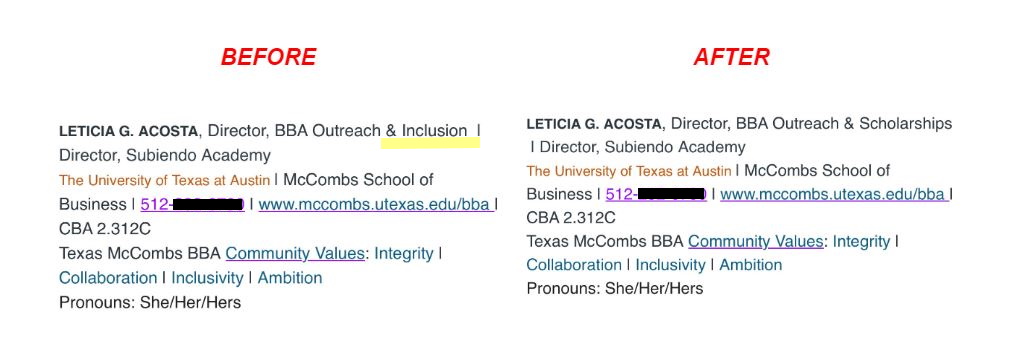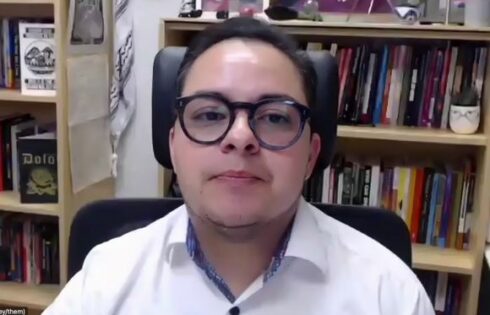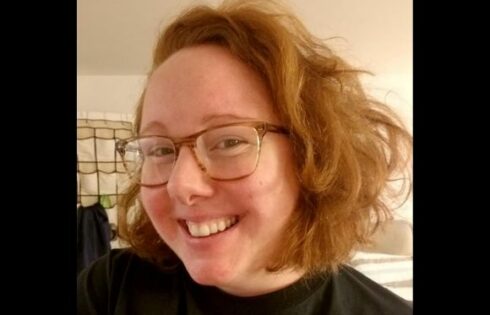
Efforts in Texas, Arkansas and Florida to cut diversity, equity and inclusion programs may not be all that they appear, as some observers argue the attempts amount to window dressing while DEI remains behind the scenes.
In one method, it appears campus leadership simply reworded a job title to eliminate DEI verbiage.
At UT-Austin, the formerly titled “Outreach & Inclusion” director in the university’s business school has been relabeled “Outreach & Scholarships,” screenshots show.
The word “inclusion” was deleted to appear compliant with a new state law that bans DEI offices, argued one professor who asked to remain anonymous for fear of retribution.

“The UT-Austin administration has no intention of truly complying with SB 17,” the professor said in an email to The College Fix. “They will use whatever loopholes they can find to continue as much of the objectionable programming as possible, especially by hiding such programs as ‘teaching’ and ‘research,’ which were carved out as exceptions.”
Student groups are pushing the university to do just that.
“Workaround in terms of language to keep things like the multicultural engagement center, gender and sexuality center open and keep DEI-related staff from losing their jobs,” Jake Holzman, president of UT-Austin’s chapter of Students for a Democratic Society, told KXAN-TV.
In addition to UT-Austin, the University of Arkansas has dissolved its DEI department and will be relocating DEI staff to human resources, student success offices and other divisions.
“This topic is so charged that when you say, ‘We’re dissolving DEI,’ half the people hear, ‘The University of Arkansas hates Black people’ and the other half say, ‘What are you doing? This is a travesty,’” Stephen Caldwell, chair of the university’s Faculty Senate, told Inside Higher Ed.
He made the comments in the June 21 article headlined: “Dissolving a DEI Office to Save DEI: The University of Arkansas is reallocating all DEI staff and resources to other campus offices. Is it a capitulation to right-wing demands or a savvy defense tactic?”
“Neither of those two sides realize what’s actually happening, which is that all of the people on our campus doing that type of work are going to stay and will continue doing that type of work, just reporting to different people,” Caldwell said.
Neetu Arnold, a fellow at the National Association of Scholars, told The Fix that Caldwell’s comments indicate the school is seeking to dodge a potential state ban on DEI departments at public colleges and universities.
“Higher ed is committed to continuing DEI. So we shouldn’t be surprised when they will even defy state lawmakers to continue the practice behind closed doors,” Arnold said.
In Florida, Gov. Ron DeSantis signed legislation to defund and eliminate DEI at state universities after a state investigation found these institutions spent over $15 million annually on DEI and CRT-related initiatives.
Chris Rufo, a conservative activist who led the state’s anti-DEI push, alleged in a July interview that the University of Florida significantly underreported the presence of DEI on their campus to the state to save certain programs from being defunded.
“I’ve discovered through public records requests and the threat of litigation, that the University of Florida, which is under the purview of a Red state legislature, explicitly lied to the governor, in its official response to his request about their DEI programs,” Rufo told the Daily Mail.
Rufo argued UF’s conduct is indicative of a broader trend.
“What we see over and over in America’s institutions is that the leaders have been captured by radical left wing DEI ideology. And then when they’re discovered, they make every attempt to hide, obfuscate and conceal the true nature of what’s happening inside their institutions,” Rufo said.
UF spokesman Steve Orlando declined to comment on the allegations to the Daily Mail.
Education watchdog Louis Bonham recently argued that banning DEI will be meaningless without enforcement.
“These administrators face no downside for intentionally violating any anti-DEI law. Indeed, doing so allows them to virtue-signal and gain street cred among the wokesters for their willingness to ‘resist’ what they see as the ‘wrong’ kind of law,” Bonham argued in a July 19 piece for Martin Center for Academic Renewal.
“Whether it is the new constitutional bans on affirmative action in admissions, long established (but oft-ignored) bans on racial preferences in hiring, or laws prohibiting DEI practices, history teaches that absent concrete legal consequences for violating the law, university administrators will simply wink at the legislature while continuing to follow what they consider to be the path of moral righteousness.”
MORE: UCLA refused public records request for job denied to scholar who criticized DEI
IMAGE: El Nariz / Shutterstock
Like The College Fix on Facebook / Follow us on Twitter





Please join the conversation about our stories on Facebook, Twitter, Instagram, Reddit, MeWe, Rumble, Gab, Minds and Gettr.